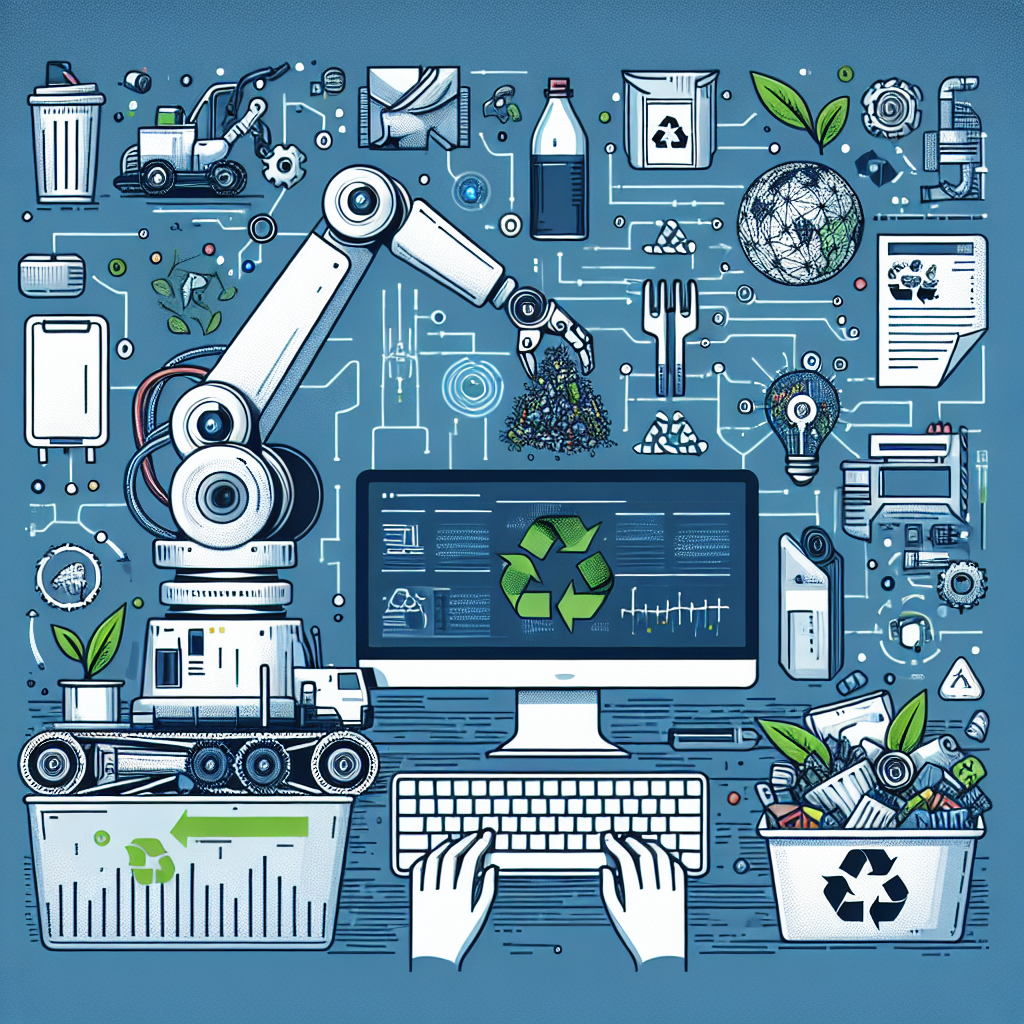Artificial Intelligence (AI) is revolutionizing many industries, and sustainable waste recycling is no exception. With the increasing global focus on environmental sustainability and the need to reduce waste and recycle more efficiently, AI technology is playing a crucial role in improving waste management processes. From sorting and separating materials to optimizing waste collection routes, AI is helping to make recycling more efficient and effective.
One of the key areas where AI is making a significant impact on sustainable waste recycling is in the sorting and separation of materials. Traditional recycling facilities rely on manual labor to sort different types of materials such as plastics, glass, and paper. This process can be time-consuming and labor-intensive, leading to inefficiencies and inaccuracies in the sorting process. AI-powered sorting machines use computer vision technology to automatically identify and separate different types of materials, making the sorting process faster and more accurate. This not only improves the efficiency of recycling facilities but also helps to increase the overall recycling rate by ensuring that more materials are properly sorted and recycled.
Another way AI is revolutionizing sustainable waste recycling is through the optimization of waste collection routes. Waste collection companies often face the challenge of planning efficient routes to collect waste from multiple locations while minimizing fuel consumption and emissions. AI algorithms can analyze data on waste generation patterns, traffic conditions, and other factors to create optimized collection routes that reduce fuel consumption and emissions. By using AI to optimize waste collection routes, waste management companies can save time and resources while also reducing their environmental impact.
AI technology is also being used to improve the overall efficiency of recycling processes. For example, AI-powered sensors can be installed in recycling bins to monitor waste levels and alert collection teams when bins are full and need to be emptied. This helps to prevent overflowing bins and ensures that waste is collected in a timely manner. AI algorithms can also analyze data on waste composition and recycling rates to identify areas for improvement and optimize recycling processes. By using AI to improve efficiency in recycling processes, waste management companies can reduce costs and increase the amount of waste that is recycled.
In addition to improving efficiency, AI is also helping to make recycling more sustainable by enabling the development of new recycling technologies. For example, AI-powered robots are being used to disassemble and sort electronic waste, making it easier to recycle valuable materials such as precious metals and rare earth elements. AI algorithms are also being used to develop new recycling techniques, such as chemical recycling, which can break down plastics into their original monomers for reuse in manufacturing. By leveraging AI technology, recycling companies are able to develop innovative solutions that make recycling more sustainable and environmentally friendly.
Overall, AI is revolutionizing sustainable waste recycling by improving sorting and separation processes, optimizing waste collection routes, increasing efficiency, and enabling the development of new recycling technologies. By harnessing the power of AI, waste management companies can reduce costs, improve recycling rates, and minimize their environmental impact. As the demand for sustainable waste management solutions continues to grow, AI technology will play an increasingly important role in shaping the future of recycling.
FAQs:
1. How does AI technology improve the sorting and separation of materials in recycling facilities?
AI-powered sorting machines use computer vision technology to automatically identify and separate different types of materials, making the sorting process faster and more accurate. This improves the efficiency of recycling facilities and increases the overall recycling rate.
2. How does AI optimize waste collection routes?
AI algorithms analyze data on waste generation patterns, traffic conditions, and other factors to create optimized collection routes that reduce fuel consumption and emissions. This helps waste management companies save time and resources while also reducing their environmental impact.
3. How is AI technology being used to develop new recycling technologies?
AI-powered robots are being used to disassemble and sort electronic waste, making it easier to recycle valuable materials such as precious metals and rare earth elements. AI algorithms are also being used to develop new recycling techniques, such as chemical recycling, which can break down plastics into their original monomers for reuse in manufacturing.
4. What are the benefits of using AI technology in sustainable waste recycling?
AI technology improves sorting and separation processes, optimizes waste collection routes, increases efficiency, and enables the development of new recycling technologies. This helps waste management companies reduce costs, improve recycling rates, and minimize their environmental impact.

